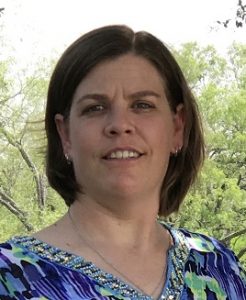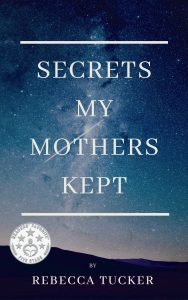Writing What You Know…With a Twist
By Rebecca Tucker
 When I tell friends what my upcoming novel, Secrets My Mothers Kept, is about, they inevitably respond with “So, it’s about your life!”, to which I respond, “Not exactly.” I don’t blame them for thinking so, however. After all, writers are often told to ‘write what you know’ and it’s true that, like my main character, I am an adopted Jewish lesbian. It’s also true that, to my knowledge, there aren’t that many of us, so it is a rather specific niche topic for a novel. At least, on the surface.
When I tell friends what my upcoming novel, Secrets My Mothers Kept, is about, they inevitably respond with “So, it’s about your life!”, to which I respond, “Not exactly.” I don’t blame them for thinking so, however. After all, writers are often told to ‘write what you know’ and it’s true that, like my main character, I am an adopted Jewish lesbian. It’s also true that, to my knowledge, there aren’t that many of us, so it is a rather specific niche topic for a novel. At least, on the surface.
My novel is about a young Jewish woman, Austin, who discovers she’s adopted and struggles with her parents’ lies about her past, the search for her origins, and troubling questions around her Jewish identity. The roots for my novel did start with events in my own life, growing steadily while I was in the midst of searching for my own birth family.
Unlike Austin, I had known I was adopted from a very young age. However, I had very little information about my adoption and, after following the scant paper trail for over twenty years, all I had to show for it were dead ends. Once DNA testing became prevalent and more affordable, I jumped at the opportunity.
Search and reunion experts often recommend writing a letter to your birthmother so that your first contact is thoughtful and separate from the high emotions that dominate the reunion process. I imagine it also makes the possible reunion less intimidating for the person who has been found. I wrote a number of different drafts of this letter and, in doing so, spent a significant amount of time considering who my birthmother might have been and might be. I found myself wondering what kind of conversation we might have if and when we ever met. I wrote out a scene centered around this letter, which eventually became the scene in the book with Austin and her birthmother speaking for the first time.
I was in the midst of working on the book with this scene as its pivotal point when I found my birthmother’s family and discovered she had passed away. It was a shocking blow to me. I had, as many searching adoptees do, considered the possibility, but it didn’t resonate with me until I knew it definitively.
The scene that started the novel became even more important as it represented something that was no longer possible for me to have in my life, but that I could vicariously experience in my novel. I could use my experience as a starting point, as a foundation, to create a story that could take not only myself, but my audience on an emotional journey that embraces the commonalities these topics engender in us all, such as feelings of abandonment, the struggle for strength and resilience, and the discovery of hope.
I discovered that I enjoyed writing what I know through the eyes of someone else. Someone who sees the world differently than I do, holds other opinions, and has reactions I wouldn’t have to extraordinary situations. That’s the twist to writing what you know, focusing on thoughts and feelings, authenticity and honesty, even though the events and characters are fiction and perhaps foreign to you.
As an author, I write to understand people’s internal driving forces and emotional struggles. I try use the power of language to help others walk in someone else’s shoes; to take them, and myself, on complicated and contradictory emotional journeys.
This isn’t to say writing is all altruism. It’s also a safe space to explore my own demons and unresolved issues. In the novel, Austin “had avoided mirrors whenever possible because of the discomforted, unsettled feeling that washed over her every time she saw her reflection, as if a stranger was staring back at her.” I know what that feels like. I had recently written in a blog post: “I questioned whether my inability to recognize myself in the mirror had something to do with lacking a frame of reference; namely, that I had never seen any biological family members.
That, like Austin, I suffered a strange form of self-prosopagnosia.” I may not have resolved anything yet by writing about these crises of identity, but I do think I have more empathy and a broader mind than I had before. I hope my readers are able to take away the same.
I once read an article on what authors thought of the oft given ‘write what you know’ advice. One of the authors, Nathan Englander, said it was the most misunderstood piece of advice often given. In his opinion, “it is empathic advice; it’s about feelings…” No matter the genre, all writers write what they know to a certain extent, or at least the good ones do. The sci-fi writer still writes characters that an audience can relate to, whether they’re bipeds or tentacled creatures living in methane lakes on Titan. All that is required, as Ursula K. Le Guin put it, “is a good definition of ‘know.’” The unique combination of what an author writes, and the reader brings to a novel, allows for the unique bonding over a powerful shared human experience.
—
Rebecca Tucker earned a BA in English, as well as a BS in Operational Meteorology, and splits her time between writing fiction and working as a global marketing director for a research and consulting firm. When she’s not at her desk, she is busy pursuing numerous geeky hobbies (that she rotates every few months to fit them in), such as astronomy, rockhounding, and fossil hunting. She lives in South Central Texas with her wife of 21 years, two dogs, and a few cats, the true number of which she will never reveal. You can keep up with her books, blog, and occasional pet pics at RebeccaTuckerBooks.com.
– Twitter: twitter.com/researchib
SECRETS MY MOTHERS KEPT
“Tucker exhibits mesmerizing story-telling skills in this heartfelt, honest story of love and betrayal…Fluid dialogue and a tightly formatted storyline set this novel aside in a refreshingly unique category all its own.” – Readers’ Favorite
 Austin Nobel is preparing for a summer trip to France, which includes obtaining a passport. However, when she receives her birth certificate in the mail with the wrong name on it, Austin uncovers that she was adopted, something her parents had kept secret from everyone.
Austin Nobel is preparing for a summer trip to France, which includes obtaining a passport. However, when she receives her birth certificate in the mail with the wrong name on it, Austin uncovers that she was adopted, something her parents had kept secret from everyone.
Austin pursues more information about her birth parents and their complicated history against the wishes of her family, while struggling with the impact this revelation has on her status within the Reform Jewish community. Is she really Jewish in the eyes of her community? In her own eyes? The support of a new romantic interest and an old family friend helps Austin find strength, resilience, and forgiveness as she searches for answers about her own origins and identity.
BUY HERE
Category: Contemporary Women Writers, How To and Tips























